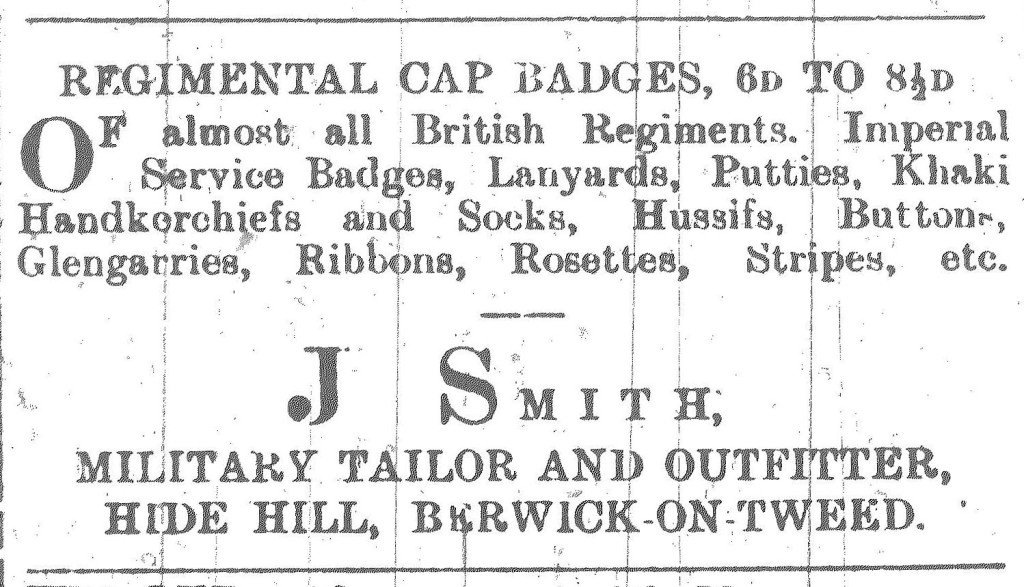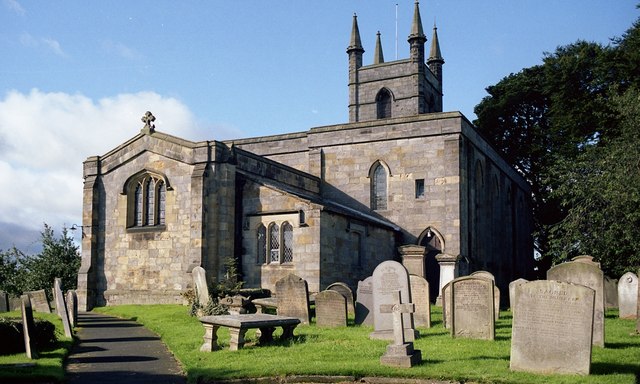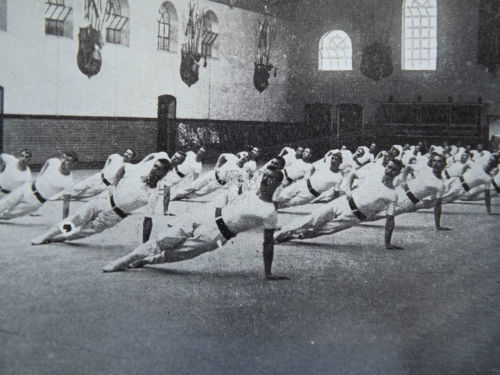BERWICK ADVERTISER, 10 SEPTEMBER 1915
PILGRIMAGE TO LINDISFARNE
On the anniversary of the death of Saint Aidan a party of pilgrims, mainly composed of clergymen from Newcastle, visited Holy Island to attend a service of Holy Communion in the Old Priory of Aidan. The pilgrimage was organised by the Rev. Finkay Sanderson. The party travelled by train to Beal, and crossed to the island – some by conveyances, and others by “plodging” over the sands. At the ringing of the “Peace Bell” at noon calling all people on the island to pray for our soldiers and sailors and all in peril or mourning during the war, the service commenced.
The officiating clergy were Bishop Ormsby, assisted by the Rev. Irvine Crawshaw, Vicar of
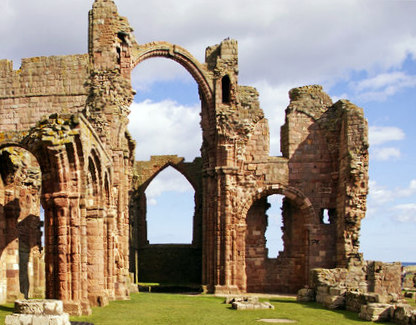
Holy Island. The service opened with the hymn, “O God of Bethel.” Then followed a portion of Psalm 44 and Psalm 61. These were followed by the service of Holy Communion, taken by the Bishop, who gave his address on the text, “He being dead yet speaketh.” Bishop Ormsby pointed out that 1,264 years had passed since Aidan breathed his last. During this period two voices and been continually heard; one calling us to remember the days that are past, the other exhorting us to listen to the lessons which Aidan would teach. The offertory was given to the Holy Island medicine chest.
The pilgrims had lunch on the links, and tea at the Northumberland Arms. A visit was later paid to Bamburgh. Some of the pilgrims availed themselves of a motor boat, and crossed over to the “Beacons,” walking thence to Bamburgh, where evensong was held in St. Aidan’s Church.
BELFORD
On Thursday morning, while the eight-year-old son of Mr Pascoe, coastguard, Ross, was cycling out of Nursery Lane, Belford, he came in collision with a motor car. The boy’s leg was broken below the knee, and he was taken into the house of Dr Macdonald near by, who conveyed him home in his motor car.
Circus – On Monday night, Pinder and Ord’s Circus visited Belford and gave a performance in a field at the top of West Street. Several of the turns were really good, in particular the performances of the elephant. No bright lights were allowed outside the show by order of the military authorities, but inside all was bright as usual

GIFT JUMBLE SALE
As will be seen from our advertising columns, Mr A. L. Miller will sell in the Corn Exchange, on Wednesday next, a quantity of miscellaneous effects, the proceeds of which will be applied to the British Red Cross Society. The Auctioneers and Estate Agents Institute has purchased the famous “Star and Garter” Hotel on Richmond Hill, and presented it to Her Majesty the Queen, who has graciously accepted the same, to be used as a permanent home for paralysed and totally disabled soldiers and sailors. The members of the Institute have contributed liberally to the purchase money (£21500), and
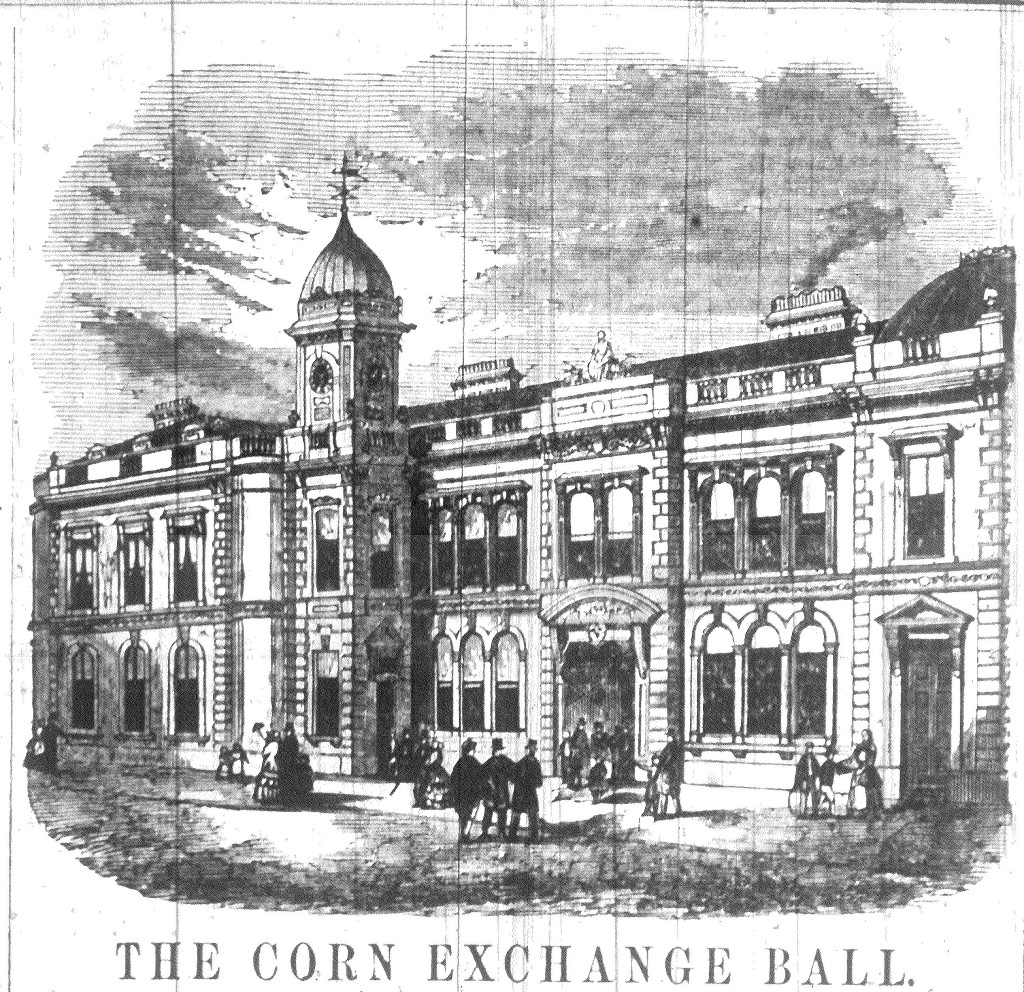
any sum received in excess of the purchase money will be given to the Red Cross Society, which has undertaken the necessary alterations, equipment, and maintenance of the Home. Mr Miller has received a large number of articles for the sale, including some good household furniture, electro-plated goods and china, some fine old cut glass, 100 volumes of books, poultry, fat lambs, tea, flour, rolled oats, a waggonette, and a number of sundries, which will yield an acceptable contribution to the Fund, if the sale receives the measure of public support which the good cause it seeks to promote fully entitles it.


